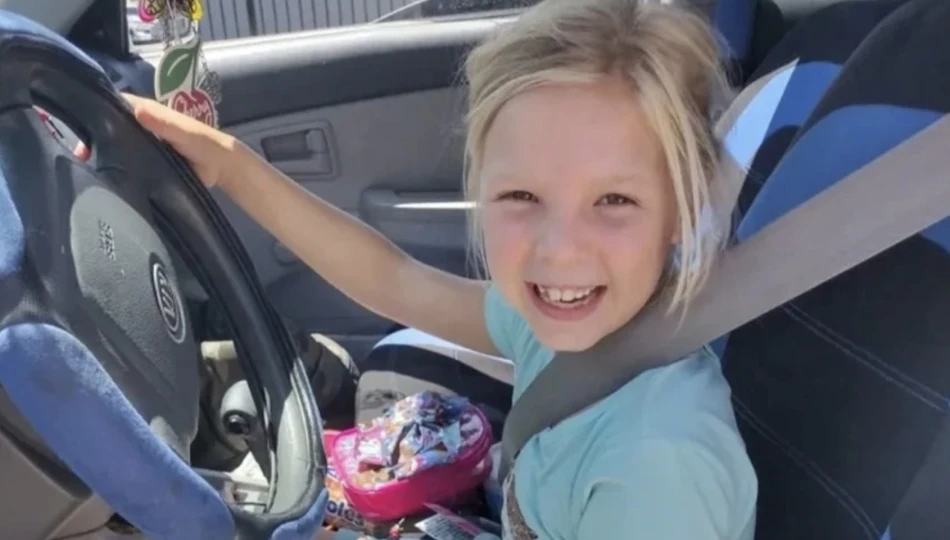
Horrific Arizona Crime: Father and Girlfriend Tortured Child to Death
Arizona Child Protection System Under Fire After 10-Year-Old's Torture Death Despite 12 School Reports
The horrific death of 10-year-old Rebecca Baptist in Arizona has exposed critical failures in the state's child protection system, after her school reported concerns about her welfare 12 times before she was found unconscious on a highway and died from severe abuse injuries. Her father and his girlfriend now face first-degree murder charges in what authorities describe as one of the most brutal child abuse cases in the state's recent history.
The Tragic Discovery
Rebecca Baptist was discovered unconscious at a road intersection in Holbrook, a small city in northeastern Arizona, on July 27. Despite being rushed to a medical facility, she succumbed to her injuries three days later on July 30. The location where she was found—on a highway rather than in a home or safe environment—immediately raised red flags for investigators.
Authorities quickly arrested her father, Richard Baptist, 32, and his girlfriend, Anisha Woods, 29, charging both with first-degree murder and child abuse according to Apache County court documents.
Evidence of Systematic Torture
Medical Examination Reveals Horrific Abuse
Court proceedings on August 4 unveiled the shocking extent of Rebecca's suffering. Medical examinations revealed she had endured severe torture, presenting with dehydration, malnutrition, and missing toenails. Her uncle, Damon Hawkins, indicated that internal bleeding was the likely cause of death.
The child's body showed evidence of physical and sexual abuse, with bruises covering her entire body—painting a picture of prolonged, systematic torture rather than isolated incidents of violence.
System Failures and Missed Opportunities
Twelve Unanswered Calls for Help
Perhaps most damning is the revelation that Rebecca's school contacted Arizona's Department of Child Services (DCS) twelve separate times regarding her condition. This represents a catastrophic failure of the child protection system, where multiple warning signs were either ignored or inadequately investigated.
The repeated reports suggest school staff recognized ongoing abuse but were unable to secure effective intervention. This pattern mirrors systemic issues seen in other high-profile child abuse cases across the United States, where overwhelmed agencies struggle with caseloads and bureaucratic inefficiencies.
Arizona's Troubled Child Protection History
Arizona's DCS has faced scrutiny in recent years over its handling of child welfare cases. The agency has grappled with high turnover rates, overwhelming caseloads, and budget constraints—factors that often contribute to cases falling through the cracks.
This case echoes similar tragedies nationwide, including high-profile deaths in states like California and Florida, where children died despite multiple reports to protective services. Such cases typically lead to policy reviews, leadership changes, and increased funding—though critics argue these reactive measures come too late for victims like Rebecca.
Legal and Systemic Implications
Criminal Justice Response
The first-degree murder charges against both defendants indicate prosecutors believe the abuse was premeditated and deliberate. In Arizona, first-degree murder can carry the death penalty, though recent political shifts have complicated capital punishment cases in the state.
Accountability Questions
Beyond the criminal case, Rebecca's death will likely trigger investigations into DCS operations and potentially civil litigation. Families of children who die after multiple reports to protective services often pursue wrongful death claims against state agencies, arguing negligence contributed to preventable deaths.
The case also raises questions about mandatory reporting protocols and whether schools and other institutions have adequate tools to escalate concerns when initial reports don't generate effective responses.
A Pattern of Preventable Tragedies
Rebecca Baptist's death represents more than an isolated criminal act—it exemplifies the deadly consequences of systemic failures in child protection. When schools report concerns twelve times without effective intervention, it suggests fundamental breakdowns in communication, investigation, and emergency response protocols.
As Arizona grapples with this tragedy, the focus will inevitably shift from criminal prosecution to systemic reform. However, for Rebecca Baptist, any future improvements come too late, making her death both a criminal tragedy and an indictment of institutional failures designed to protect society's most vulnerable members.
Most Viewed News

 Sara Khaled
Sara Khaled






